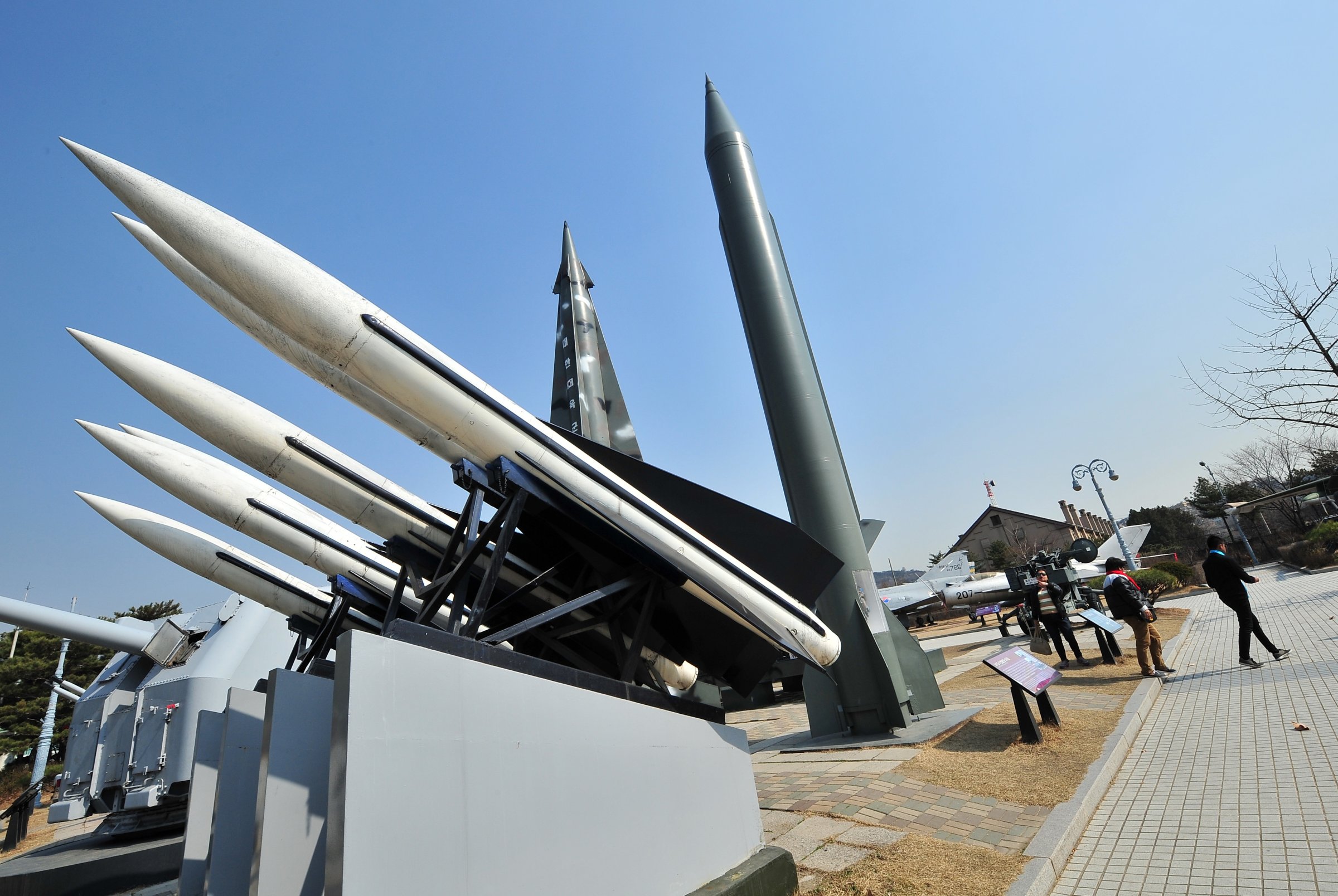
On Dec. 12, 2009, a Georgia-registered cargo plane made an emergency landing in Bangkok. The manifest said it was carrying drilling equipment, but working on a tip from U.S. intelligence, Thai authorities decided to check. Inside the hold, they found some 35 tons of North Korean–made weapons, including surface-to-air missiles, rocket launchers and grenades. Officials said the plane was likely bound for Iran, and its cargo to Hamas and Hizballah.
North Korea’s international reputation has become so tied to Kim Jong Un memes that it is easy to lose sight of the country’s real-life role in the global arms trade. Starved for foreign currency, North Korea has a long history of manufacturing and selling weapons, including, according to U.S. officials, deals with Syria and Iran. Earlier this month, a U.S. judge found North Korea and Iran liable for missile attacks by Hizballah in 2006. On July 28, the U.N. imposed sanctions on the North Korean company that operated a ship carrying undeclared Cuban weapons that was seized by Panama authorities last year.
Now a British newspaper says North Korea is negotiating a secret deal to sell missiles to Hamas. On July 26, the Daily Telegraph’s Con Coughlin published a report claiming that Hamas paid the Hermit Kingdom “hundreds of thousands of dollars” for missiles and communication equipment in a deal brokered by a Lebanon-based security company. The story was based on information from an unnamed Western security official who reportedly told the London-based paper that “Pyongyang already has close ties with a number of militant Islamist groups in the Middle East.”
The report has not been independently confirmed; however, it would, theoretically, make sense for both parties. Thanks to U.N. sanctions, the market for North Korean weapons is shrinking, says Daniel Pinkston, a Northeast Asia expert at the International Crisis Group. “The incentives are there to sell arms to earn hard currency,” he says, and amid the ongoing conflict with Israel, “Hamas has an incentive to buy.” But there are still a lot questions: If the report is true, when, where and how would the deal take place?
For its part, North Korea denied any involvement — and did so, of course, with exactly the kind of verbose bluster that fuels the North Korea meme machine. “This is utterly baseless sophism and sheer fiction let loose by the U.S. to isolate the DPRK internationally,” said a Foreign Ministry spokesman, according to the state-backed Korean Central News Agency.
The news agency went on to berate Washington for its stance on the Israeli-Palestinian conflict. “Lurking behind this propaganda is a sinister intention of the U.S. to justify its criminal acts of backing Israel driven into a tight corner by its recent unethical killings in the Gaza Strip.” It is the U.S., it said, not Pyongyang, that is the “kingdom of terrorism and chief culprit of international terrorism.”
More Must-Reads from TIME
- Donald Trump Is TIME's 2024 Person of the Year
- Why We Chose Trump as Person of the Year
- Is Intermittent Fasting Good or Bad for You?
- The 100 Must-Read Books of 2024
- The 20 Best Christmas TV Episodes
- Column: If Optimism Feels Ridiculous Now, Try Hope
- The Future of Climate Action Is Trade Policy
- Merle Bombardieri Is Helping People Make the Baby Decision
Write to Emily Rauhala / Beijing at emily_rauhala@timeasia.com